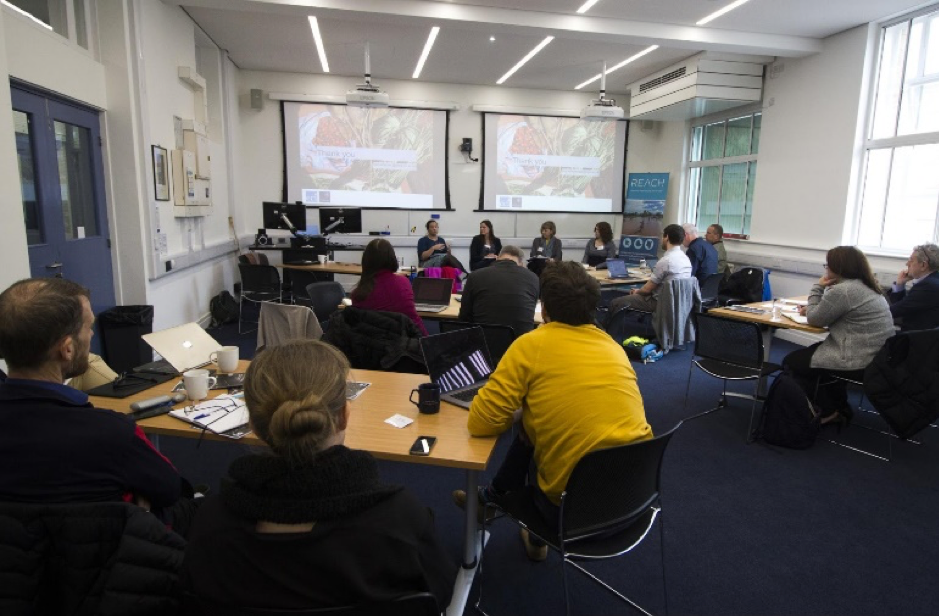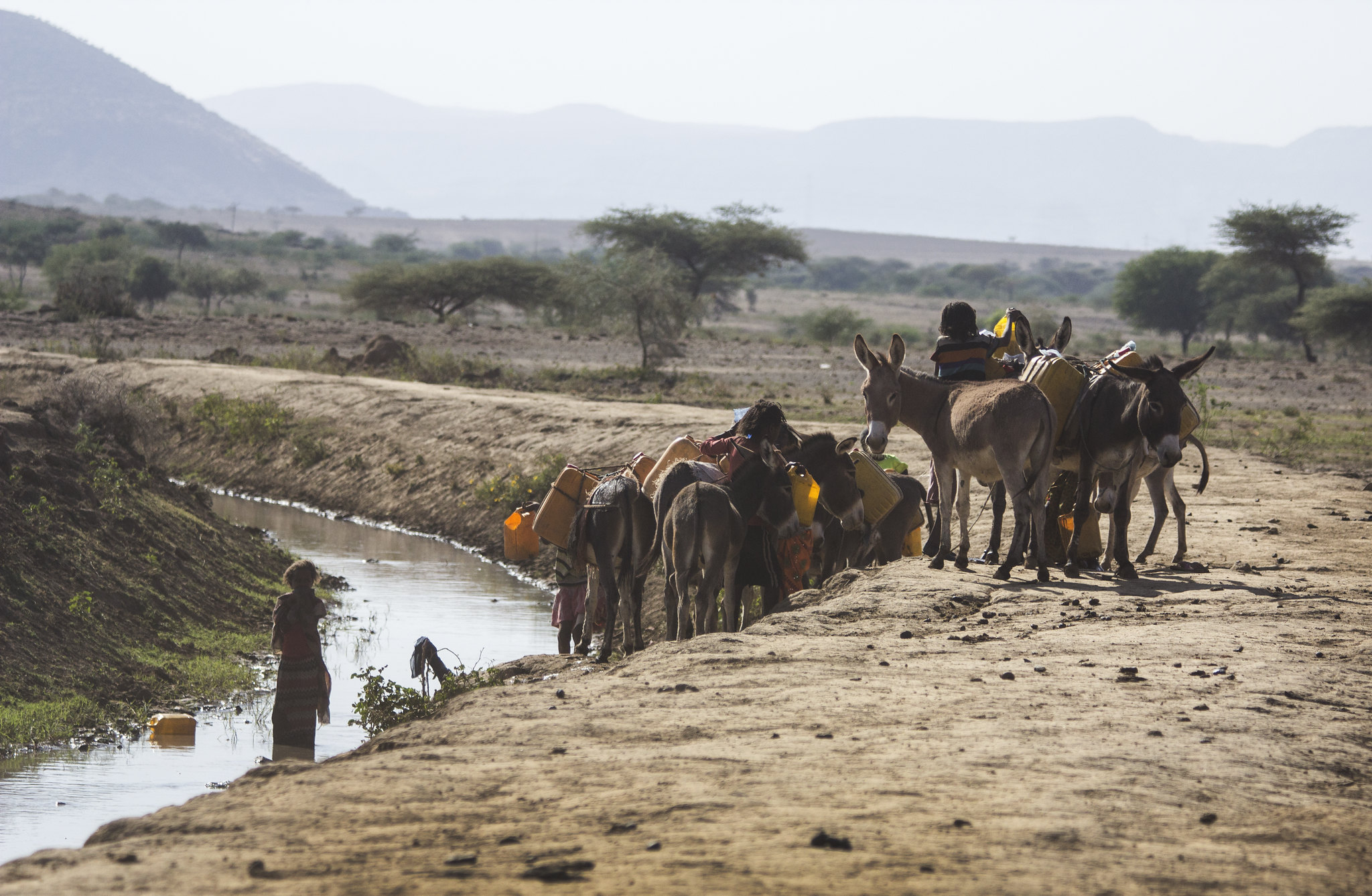Dr Catherine Grasham, Jess Fullwood-Thomas and Joanna Trevor
In February, REACH hosted a workshop in conjunction with Oxfam GB. The event convened 25 global thought leaders on water security and climate resilient development. This blog reports on the workshop, sharing insights into water security perspectives on climate resilience.
In the context of the global climate emergency, water security and climate resilience are intimately connected. Across the world, and in different sectors, we are on a common journey to understand what resilience means and for whom. Differing and conflicting understandings of these concepts between stakeholders present bottlenecks to change. This leaves us with pressing questions, What is climate resilience? What are we aiming for? And how do we get there?
To address these complex questions, we organised a workshop with participants from world-leading research, practitioner and donor organisations including the UK Department for International Development, Oxfam GB and Oxford University, among others. Whilst we still don’t have all the answers, some key themes and solution-based ideas emerged from the discussions.

Where can academics and practitioners working on water security truly add value?
Climate resilience is both a process and an outcome. In general, it speaks to the ability to manage change, cope with shocks and stresses and improve well-being now and in the future. Specifically, for water security, it is necessary to consider how water developments, including WASH systems, can themselves be climate resilient and, also, how they contribute to climate resilience.
From a legacy of research and practice, we know that sustainable and climate resilient water interventions are challenging to develop, particularly in fragile contexts. Beyond climate, success is dependent on other social, political and economic factors. For instance, in places like South Sudan and DRC, understanding the demand for water services by the population must go hand-in-hand with grappling with the politics of water security.
Climate resilience by whom, for whom?
No one owns climate resilience, notably because the process towards achieving it will have to vary across contexts even if there are shared outcomes. How effective these processes are will very much depend on who holds the power to turn knowledge into action and how this is funded.
Water security interventions must recognise and build on inherent resilience for sustainable outcomes. In the workshop, practitioners shared experiences of interventions that were much more successful when grounded in the priorities and capacities of water users and communities. However, it is difficult to gather contextual evidence on how marginalised communities have been dealing with climate hazards and variability for generations and their inherent climate resilience. Doing so will go some way towards addressing immediate operational needs and ensuring inclusion.
Water security and fragility – balancing the ideal with the reality?
As global inequalities grow and the world’s poorest are left behind, the political nature of development becomes increasingly visible. There are wider political processes that reproduce global inequities in climate vulnerability and water insecurity. In the quest for economic efficiency, water security interventions must be broadly contextualized in order to be sustainable.
Particularly when addressing water security in fragile contexts, engaging with politics is a prerequisite. However, it will involve careful negotiations, confronting sensitivities and facing up to the difficulties it can lead to around access and security. Only then will safe, inclusive, climate resilient water provision be sustained.
As practitioners, researchers and funders, we must understand water security as a contributing factor to displacement, conflict and instability. Funding must follow suit and be flexible within dynamic socio-political systems, and in response to climate change. In DRC, Oxfam works to support sustainable water systems by professionalising management, improving maintenance and supporting financing. These systems have to be designed and managed to expand and contract with the context.
What is the scale for climate resilience?
Whilst climate resilience interventions inevitably exist across different scales, more attention needs to be paid to addressing the drivers and root causes in all our work.
It is important to scale up whilst working contextually. National leadership and service provision investment is critical. However, local water managers continue to struggle day-to-day to provide clean water without electricity, financing or resources. In Northern Kenya, more frequent cyclical droughts undermine the resilience of the population but a day-to-day concern is how water services are managed and maintained. How feasible is it to think big when the basics aren’t in place? We must continue to employ a multi-targeted approach and acknowledge that climate resilience is not a panacea for water security.
Key takeaways for researchers and practitioners
- Actors working towards climate resilience need shared goals and a common understanding. We need to challenge one another and find ways of working more collaboratively across our divides while interrogating our roles within the space of climate resilience.
- The key political barriers to system change are financing, inclusion and regulation. This is where our work can add value with donor financing, support for shared monitoring of success and facilitating meaningful community participation in decision-making processes.
- We need to acknowledge migration as the new norm. Mobility will be part of the solution, as well as part of the challenge, for water security threatened by climate variability and hazards.
- We can no longer accept the status quo. Climate resilience is political, and politics needs to prepare to change.

